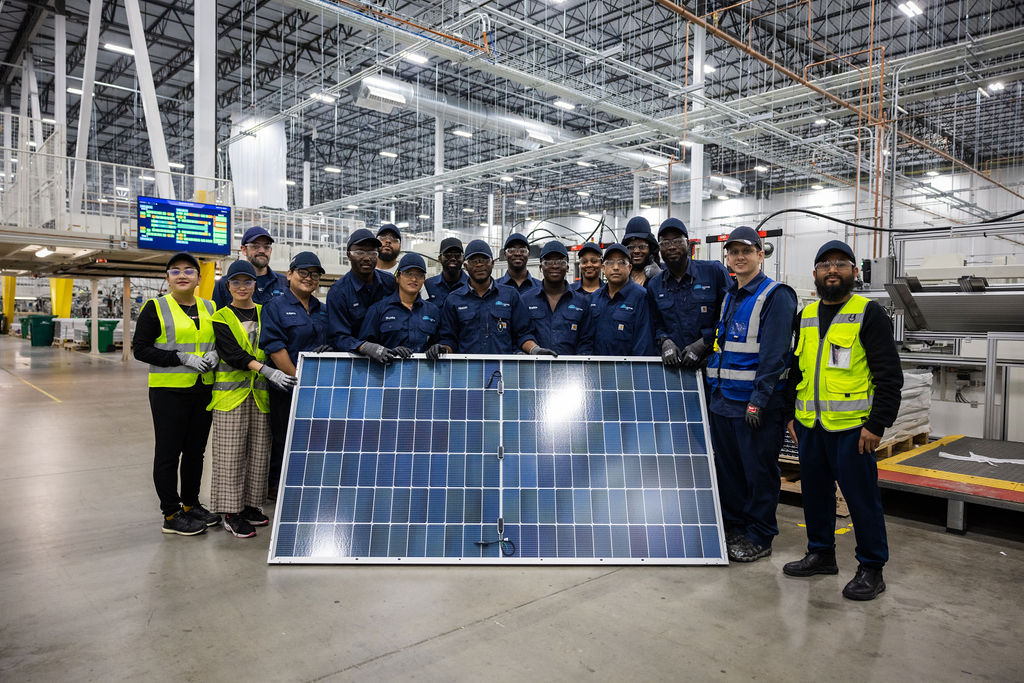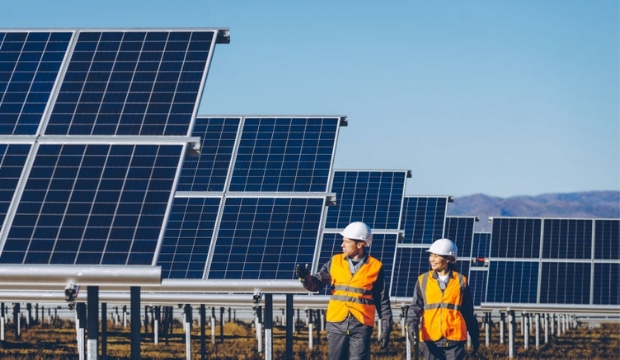All About Solar Panel Company Virginia
All About Solar Panel Company Virginia
Blog Article
Solar Panel Financing Options Virginia: Lumina Solar Specializes In Providing Advanced Photovoltaic Solutions For Residences And Services
History and Establishing
Have you ever wondered how a photovoltaic panel company springs from a simple trigger of motivation into a powerhouse of renewable resource? It often starts with a vision-- one fueled by a blend of innovation, determination, and a pinch of serendipity. The journey of many solar companies mirrors the development of the innovation itself: from bulky, ineffective panels to smooth, high-efficiency marvels utilizing the sun's bounty.
The Early Days
In the late 20th century, when solar energy was still a specific niche concept, leaders planted seeds for what would become a global movement. Think of a small workshop filled with curious engineers, tirelessly try out photovoltaic cells. Their passion was palpable, frequently driven by a desire to combat climate modification and decrease dependence on fossil fuels.
One such anecdote is about a more info founder who, influenced by a camping trip, realized that even in remote areas, the sun might power essential devices. This simple observation triggered a business's objective to equalize access to tidy energy.
Establishing Principles

- Development: Continually pressing the limits of solar innovation to enhance efficiency and sturdiness.
- Sustainability: Dedicating to environmentally friendly manufacturing and minimizing carbon footprints.
- Ease of access: Making renewable resource solutions inexpensive and useful for daily users.
Milestones in Growth
| Year | Secret Event |
|---|---|
| 1985 | Company founded in a little garage, concentrating on research and advancement. |
| 1995 | First industrial photovoltaic panel product introduced, gaining local attention. |
| 2005 | Broadened to international markets, welcoming international renewable energy goals. |
| 2015 | Presented cutting-edge solar panel innovation with improved energy conversion. |
Isn't it interesting how these incremental steps, frequently neglected, form the energy landscape today? The photovoltaic panel company story is not almost innovation; it's about an unrelenting mission for a brighter, cleaner future.

Innovations in Photovoltaic Panel Technologies
Ever noticed how some solar panels gleam brighter and last longer? It's not magic; it's the science of photovoltaic performance. Modern solar panel companies invest greatly in technologies like bifacial cells, which catch sunlight from both sides, improving energy harvest without expanding roofing system space. Have you ever questioned why some panels carry out much better on cloudy days? That's due to advances in thin-film solar innovation, which prospers under diffused light conditions.
Product Variations Customized to Distinct Requirements
One size never fits all. Photovoltaic panel companies now provide:
- Monocrystalline panels for optimum performance and sleek looks, perfect for space-constrained roofs.
- Polycrystalline panels, which provide a cost-effective option without compromising excessive output.
- Building-integrated photovoltaics (BIPV), merging solar tech perfectly into architectural aspects like windows and exteriors.
Picking the right item isn't just about in advance cost; it has to do with matching your environment, energy objectives, and long-term savings. For instance, homes shaded by trees require panels that stand out in low-light circumstances, something numerous overlook until energy bills climb up all of a sudden.
Technical Tips for Optimum Choice
- Assess the temperature level coefficient-- lower values indicate panels lose less effectiveness on hot days.
- Try to find panels with enhanced anti-reflective coverings to take full advantage of light absorption.
- Consider the panel's warranty not just for flaws, but for ensured power output over years.
- Don't ignore the significance of the inverter technology matched with the panels; it can make or break your system's performance.
Beyond Panels: Emerging Trends
Picture photovoltaic panels that adjust their angle immediately to chase after the sun-- tracking systems are becoming more accessible, increasing yield considerably. Or solar tiles that blend undetectably into your roofline, transforming your home into a silent, self-sufficient power generator. These developments are improving what a solar panel business offers-- not simply items, however incorporated energy options.
Market Presence and Global Operations
Ever wonder why some photovoltaic panel companies seem to sprout up in every corner of the world while others barely make a ripple? The difference lies not just in innovation but in mastering the art of browsing diverse markets. Broadening internationally is like planting seeds in different environments-- you need to understand each environment's special conditions to grow.
Take, for example, the elaborate dance of logistics and supply chain management. Shipping panels halfway throughout the world isn't practically distance; it's about timing, customs, tariffs, and adapting to local need variations. A business with robust worldwide operations anticipates these variables, ensuring panels show up on schedule without inflating expenses. This insight is no small accomplishment and typically separates market leaders from followers.
Key Methods for Expanding Market Presence
- Localized manufacturing: Developing production centers near target audience minimizes shipping delays and import complexities.
- Strategic collaborations: Working together with regional firms accelerates market penetration and develops trust.
- Adaptive item design: Tailoring photovoltaic panel tech to weather, sun strength, and facilities nuances boosts efficiency and acceptance.
What about the human element? Photovoltaic panel companies running globally should reconcile cultural distinctions and regulatory subtleties without losing sight of their core mission. What works in a sun-drenched desert may fail in a humid seaside region. Sometimes, the most ingenious service is simply listening-- absorbing regional insights to fine-tune innovation and method.
Specialists typically advise a phased rollout rather than a shotgun expansion. Why risk overextension when determined growth develops sustainable momentum? Scaling carefully implies balancing aspiration with functional durability - Solar Companies in Virginia. In the race for sustainable energy supremacy, patience can be as valuable as speed.
Environmental Impact and Sustainability Practices
When photovoltaic panels first emerged, numerous assumed they brought no environmental baggage. Nevertheless, the reality is more nuanced. The production of photovoltaic cells includes rare earth metals and energy-intensive procedures, which can leave a sizable carbon footprint before the panels even reach roofs. The true ecological expense depends heavily on the sustainability practices utilized by the photovoltaic panel business throughout the lifecycle of their products.
How typically do we stop briefly to consider what occurs to solar panels at the end of their helpful life? Unlike batteries or electronics, photovoltaic panels can last 25-30 years, however disposal and recycling paths stay underdeveloped in lots of areas. A company committed to lowering ecological damage will have a robust plan for recycling photovoltaic products, restoring valuable silicon, glass, and metals to prevent landfill accumulation.
Secret Sustainability Methods
- Making use of low-impact production techniques that reduce water and energy intake.
- Carrying out closed-loop systems to recycle production waste back into brand-new panels.
- Taking part in transparent supply chain audits to guarantee ethical sourcing of basic materials.
- Creating panels for simpler disassembly to assist future recycling efforts.
It deserves noting that some solar companies have actually originated ingenious methods, such as incorporating biodegradable components or utilizing less harmful chemicals during fabrication. This not only decreases ecological strain however likewise sets a precedent for the industry. The concern stays: can the solar industry genuinely pivot towards a circular economy design without compromising effectiveness or price?
Expert Tips for Assessing Sustainability
- Inquire about the company's dedication to carbon-neutral manufacturing and whether they balance out emissions.
- Examine if they partner with accredited recycling centers committed to photovoltaic panel waste.
- Search for transparency reports detailing ecological effects and sustainability goals.
- Consider the longevity and guarantee of panels as an indirect procedure of resource efficiency.
In the end, choosing for solar energy needs to mean more than just slashing electricity bills; it's about supporting a future where energy is harvested properly and waste is attentively managed. Photovoltaic panel business that accept this approach not just illuminate homes however likewise cast a brighter light on sustainable development.
Report this page